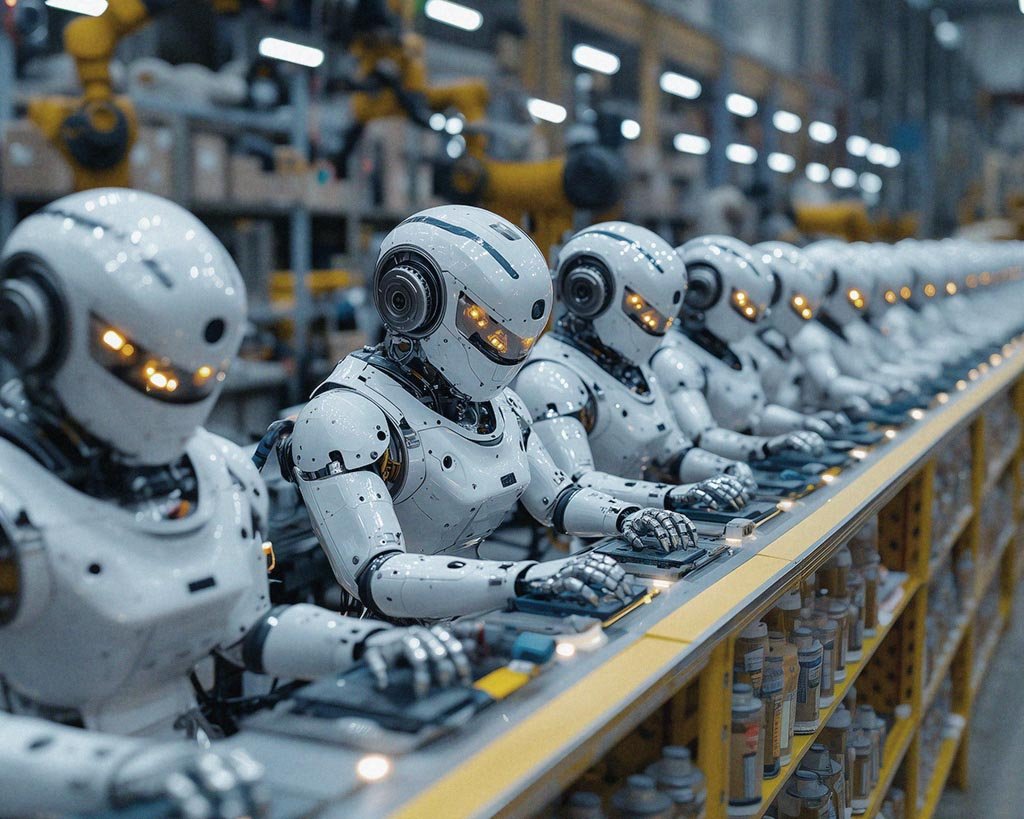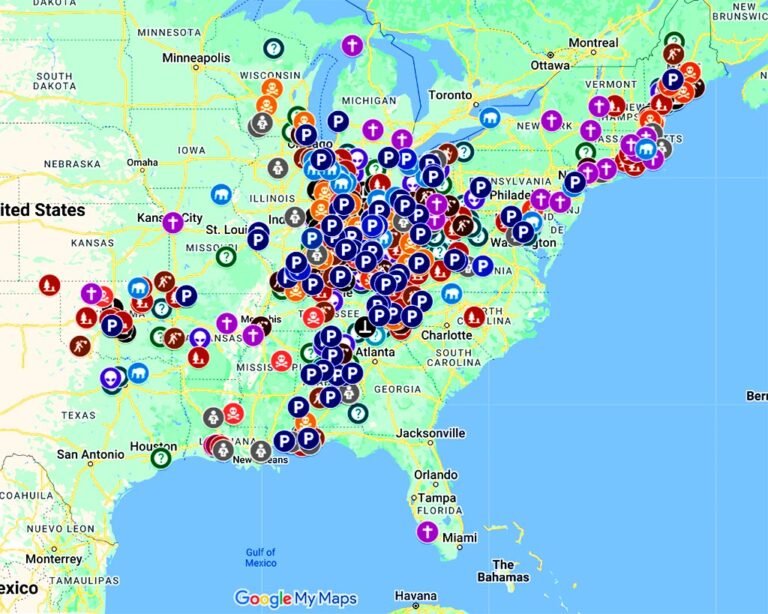What is automation?
Automation is the use of technology to perform tasks previously done by humans, often involving machines, software, and artificial intelligence. It aims to increase efficiency, productivity, and accuracy while reducing human labor.
Imagine a world where robots are assembling cars, AI is writing news articles, and algorithms are predicting your next purchase. It’s a future many see as a sci-fi fantasy, but it’s quickly becoming our reality. The automation revolution is upon us, and with it, the inevitable question arises: How will it impact our labor markets?
This isn’t just about robots taking over factories, although that’s definitely happening. Automation is infiltrating every corner of our economy, from customer service to healthcare to financial services. Think of it like a silent wave, slowly changing the landscape of work as we know it. And while some see this as a doomsday scenario, others believe it presents a chance for a brighter future, a world where humans and machines work together to build a better tomorrow.
The truth, as is often the case, lies somewhere in between. Automation will indeed displace jobs, forcing us to adapt and learn new skills. But it will also create new opportunities, requiring us to embrace innovation and think creatively about the future of work. The key to navigating this transformation successfully is understanding the challenges, preparing for the inevitable changes, and leveraging the power of automation to create a more prosperous and equitable future for all.
Navigating the Automation Tsunami: Understanding the Impact on Labor Markets
The automation revolution is a double-edged sword. While it has the potential to boost productivity, efficiency, and economic growth, it also poses significant challenges to traditional labor markets. Here’s a glimpse into the complex landscape of job displacement and the need for adaptation:
- The Rise of the Machines: As automation technologies advance, they are increasingly capable of performing tasks that were once considered the exclusive domain of humans. This has led to a growing concern about job displacement, as machines become more efficient and cost-effective than human workers. For example, self-checkout kiosks in grocery stores are replacing cashiers, while AI-powered chatbots are handling customer inquiries in call centers.
- The Future of Work: A Shift in Demand: The automation revolution is not simply about replacing jobs but about transforming the nature of work. The skills needed to succeed in the future workplace will increasingly focus on creativity, critical thinking, problem-solving, and adaptability. Instead of performing repetitive tasks, humans will be needed to analyze data, develop new strategies, and manage complex systems.
- Job displacement is a complex phenomenon: While some jobs are likely to be fully automated, others will be transformed, requiring workers to adapt and develop new skills. This will necessitate significant investment in education and training programs to prepare workers for the evolving demands of the labor market. For instance, truck drivers may need to learn how to operate and maintain autonomous vehicles, while factory workers might need to acquire skills in robotics and programming.
- The Gig Economy and the Rise of Flexible Work: Automation is creating new opportunities in the gig economy, where individuals can leverage their skills and expertise to provide services on demand. This trend is likely to continue, with more people working independently, remotely, or in flexible arrangements. This will lead to a need for new skills in areas like digital marketing, social media management, and online platform development.
- Automation is not just about technology: The impact of automation on labor markets is influenced by a complex interplay of factors, including economic conditions, government policies, and social attitudes. Addressing these challenges requires a comprehensive approach that considers the social, economic, and political dimensions of automation. For instance, policies that promote retraining programs, invest in infrastructure for the gig economy, and ensure fair labor practices will be crucial in navigating the transition.
- The need for lifelong learning: As the nature of work evolves, the need for lifelong learning becomes paramount. Individuals will need to continuously upskill and adapt their skills to stay competitive in the job market. This will mean investing in education and training throughout one’s career, adapting to new technologies and constantly developing new skills.
- The importance of reskilling and retraining programs: To mitigate job displacement and prepare workers for the future of work, governments and businesses must invest in robust reskilling and retraining programs. These programs should be tailored to the specific needs of different industries and provide workers with the skills they need to succeed in a rapidly changing job market.
- Addressing the ethical and social implications of automation: As automation technology advances, it’s crucial to address the ethical and social implications of these technologies. We need to ensure that automation benefits society as a whole and doesn’t exacerbate existing inequalities. For instance, we need to address concerns about job displacement, ensure that automation benefits all sectors of society, and consider the impact of automation on social welfare and income inequality.
- The potential for increased productivity and economic growth: While automation can displace jobs in some sectors, it also has the potential to create new jobs and boost productivity in others. The key is to invest in research and development, foster innovation, and ensure that the benefits of automation are widely shared.
Practical Solutions: Preparing for the Automation Revolution
The automation revolution is not a distant threat; it’s already here, and it’s rapidly transforming the way we work. To prepare for this new world, we need to embrace a proactive mindset and focus on developing skills that are in high demand and adaptable to the changing landscape of work.
- Invest in education and training: Lifelong learning is no longer a luxury but a necessity. Upskill and reskill to acquire skills in high demand, such as data analysis, programming, digital marketing, and cybersecurity.
- Embrace adaptability and flexibility: The future of work is likely to be more fluid and flexible than ever before. Be prepared to embrace new technologies, learn new skills, and adapt to changing demands.
- Develop strong communication and interpersonal skills: As automation takes over routine tasks, human skills in communication, collaboration, problem-solving, and critical thinking will become even more valuable.
- Focus on creativity and innovation: In a world where machines are increasingly adept at performing routine tasks, humans will need to excel in areas where creativity and innovation are paramount.
- Embrace entrepreneurship: The automation revolution is creating new opportunities for entrepreneurs. Identify emerging trends, develop innovative solutions, and leverage technology to build your own business ventures.
- Promote inclusive and equitable policies: Governments and businesses must work together to promote policies that ensure the benefits of automation are shared widely and that no one is left behind. This includes investing in education and training, providing social safety nets, and promoting fair labor practices.
- Embrace a collaborative approach: We need to foster a collaborative approach between humans and machines, leveraging each other’s strengths to achieve greater productivity and innovation.
Practical Solutions: Preparing for the Automation Revolution
The automation revolution is not a distant threat; it’s already here, and it’s rapidly transforming the way we work. To prepare for this new world, we need to embrace a proactive mindset and focus on developing skills that are in high demand and adaptable to the changing landscape of work.
- Invest in education and training: Lifelong learning is no longer a luxury but a necessity. Upskill and reskill to acquire skills in high demand, such as data analysis, programming, digital marketing, and cybersecurity.
- Embrace adaptability and flexibility: The future of work is likely to be more fluid and flexible than ever before. Be prepared to embrace new technologies, learn new skills, and adapt to changing demands.
- Develop strong communication and interpersonal skills: As automation takes over routine tasks, human skills in communication, collaboration, problem-solving, and critical thinking will become even more valuable.
- Focus on creativity and innovation: In a world where machines are increasingly adept at performing routine tasks, humans will need to excel in areas where creativity and innovation are paramount.
- Embrace entrepreneurship: The automation revolution is creating new opportunities for entrepreneurs. Identify emerging trends, develop innovative solutions, and leverage technology to build your own business ventures.
- Promote inclusive and equitable policies: Governments and businesses must work together to promote policies that ensure the benefits of automation are shared widely and that no one is left behind. This includes investing in education and training, providing social safety nets, and promoting fair labor practices.
- Embrace a collaborative approach: We need to foster a collaborative approach between humans and machines, leveraging each other’s strengths to achieve greater productivity and innovation.
What now?
The automation revolution is not a doomsday scenario; it’s an opportunity to create a more prosperous and equitable future for all. But we must act now to prepare for the inevitable changes and harness the power of automation for the benefit of humanity.
Let’s invest in education and training, promote innovation, and embrace a future where humans and machines work together to build a better tomorrow. The automation revolution is here, and it’s up to us to shape its impact on our world.





















+ There are no comments
Add yours